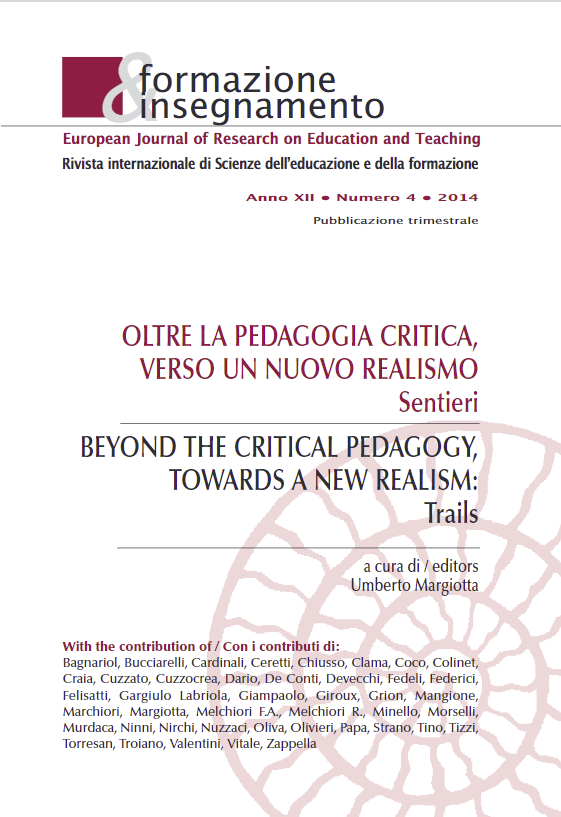Digital Storytelling and research in education. The results of ALICE: Adaptive Learning via Intuitive/Interactive, Collaborative and Emotional system
Abstract
The “new media generation” has encouraged new ways of intervening and
re-weighing the educational activities, in particular, by adopting the concept
of narrative learning in the digital context based on education by scenario.
By accepting the idea of overcoming educational models based on
the concept of reproduction and transmission, and abandoning predominantly
receptive didactic architectures, the ALICE Project has been focused
on the Digital Storytelling as a complex learning resource able to maximize
the learning in emergency situations and risk through a reinterpretation of
languages, educational situations and student’s role. First of all, the defined
model has conducted to the design of a storytelling learning object that has
been validated through an appropriate experimentation process on a random
sample of 4 secondary schools in the Neapolitan surroundings, whose
students took part in a contextualized narrative experience in the domain
of risk education. The empirical validation in the field has allowed to confirm
the didactic effectiveness of the narrative resource, pointing out possible
correlations between learning dimension, motivation and participation.
Downloads
Published
How to Cite
Issue
Section
License
Copyright (c) 2014 Giuseppina Rita Mangione

This work is licensed under a Creative Commons Attribution 4.0 International License.
Formazione & insegnamento is distributed under Attribution 4.0 International (CC BY 4.0).
For further details, please refer to our Repository & Archiving Policy, as well as our Copyright & Licensing Terms.





